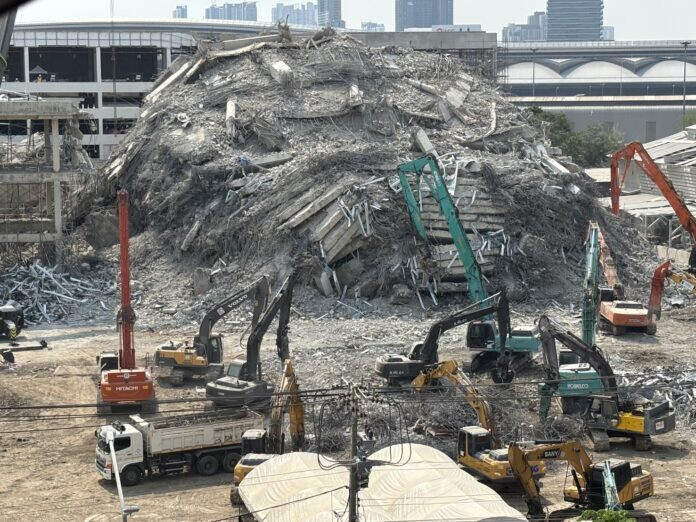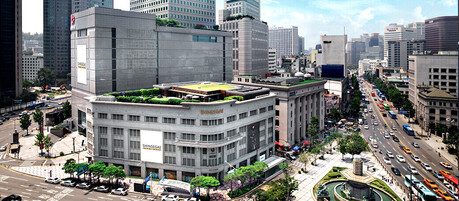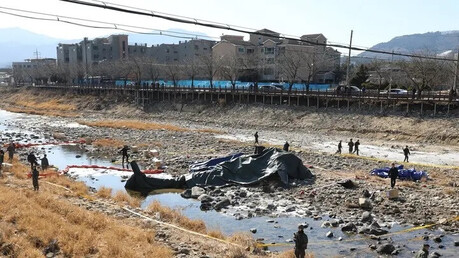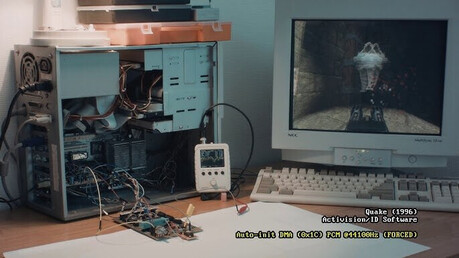
Bangkok, Thailand - An investigation into the collapse of a 33-story building under construction in Bangkok, triggered by the recent magnitude 7.7 earthquake in Myanmar, has raised serious concerns about the quality of construction materials used. Preliminary findings indicate that substandard steel may have played a significant role in the disaster that claimed at least 12 lives and left nearly 80 people trapped.
According to a report by Bloomberg News on May 1st, the Thai Ministry of Industry revealed the alarming results of its initial analysis of steel samples collected from the collapse site. Tests conducted by the Iron and Steel Institute of Thailand showed that two distinct types of steel samples failed to meet established standards across several critical parameters, including mass, chemical composition, and stress tests.
The problematic steel has been traced back to a factory that was shuttered in December of the previous year. Markings found on the steel at the construction site identified the manufacturer as ‘Xin Ke Yuan Steel,’ operating under the brand name ‘Sky’ and located in Rayong province, Thailand. This particular factory had been previously closed down due to safety concerns following a gas tank leakage incident, during which authorities had seized over 2,400 tons of steel.
Further investigation revealed that Xin Ke Yuan Steel was established in 2011, with a significant 80% stake held by nine Chinese nationals. The factory is currently non-operational, and attempts to reach the company's executives have been unsuccessful. Ekkanat Promphan, the Thai Minister of Industry, assured the public that the investigation would continue with the collection of additional steel samples from the site for further rigorous testing.
These initial findings are a direct outcome of the government's swift action in forming a committee of experts to thoroughly investigate the cause of the building collapse. Thai Prime Minister Srettha Thavisin has issued an urgent directive to the Public Works Department and Town & Country Planning Department, demanding a comprehensive report on the incident with utmost urgency.
While acknowledging the tragedy, Prime Minister Srettha sought to reassure the public by stating that the incident appeared to be linked to technical issues specific to this particular building and that other structures in Bangkok adhere to stringent earthquake-resistant building codes, thus mitigating widespread collapse risks. He emphasized that a meticulous investigation into the building's construction permits, design specifications, and the quality of all construction materials is currently underway.
The collapsed structure was intended to serve as the new headquarters for the Thai Office of the Auditor General. The construction project, valued at approximately 6.7 billion baht (around $185 million USD), was a joint venture between a Thai subsidiary of China Railway No. 10 Engineering Group Co. Ltd. (a unit of the state-owned China Railway Engineering Corporation, CREC) and Italian-Thai Development PCL. Construction commenced in 2020, and the project was reportedly 45% complete at the time of the devastating collapse.
In response to these alarming findings, the Thai government has pledged to take decisive action against any steel factories found to be in violation of the Industrial Product Standards Act. Furthermore, authorities intend to intensify their crackdown on the production and distribution of substandard steel within the country. It is noteworthy that even prior to the recent earthquake, the Ministry of Industry had been actively combating the issue of low-quality steel, leading to the closure of seven factories involved in its production and the seizure of assets worth 360 million baht (approximately $9.9 million USD) over the preceding six months.
While the earthquake in Myanmar is believed to have been the immediate trigger for the collapse, the discovery of substandard steel raises serious questions about the structural integrity of the building and the potential for negligence or malfeasance in the construction process. The fact that this was the only significant building collapse reported in Bangkok following the powerful tremor underscores the possibility of localized vulnerabilities due to material deficiencies.
Further Investigations Underway:
The investigation is now focusing on several key areas:
Source and Distribution of Substandard Steel: Authorities are working to trace the precise origin of the substandard steel and determine how it was supplied to the construction site. This includes scrutinizing the supply chain and any potential involvement of intermediaries.
Oversight and Quality Control: A critical aspect of the investigation will be to assess the quality control measures in place during the construction process. This includes examining the roles and responsibilities of the contractors, subcontractors, and any independent quality assurance agencies involved.
Certification and Compliance: Investigators will be reviewing the certifications and compliance documents related to the steel used in the building to ascertain if any fraudulent activities or breaches of regulations occurred.
Structural Design Review: While initial assurances have been given regarding adherence to earthquake-resistant codes, a thorough review of the building's structural design will be conducted to ensure it was adequate for the seismic zone and that the use of substandard materials did not compromise its intended strength.
Accountability and Legal Action: The Thai government has vowed to hold all responsible parties accountable. If the use of substandard steel or any other form of negligence is confirmed to have contributed to the collapse, legal action, including criminal charges, is likely to be pursued against the involved companies and individuals.
Impact and Future Implications:
This incident has sent shockwaves through the Thai construction industry and raised concerns among the public about the safety and quality of building projects. The potential use of substandard steel not only jeopardized the lives of construction workers but also undermined the integrity of a critical public infrastructure project.
The government's commitment to intensifying its crackdown on substandard steel production is a welcome step. However, there is a growing recognition of the need for more robust regulatory oversight, stricter enforcement of building codes, and enhanced quality control mechanisms throughout the construction sector to prevent similar tragedies in the future.
The involvement of a subsidiary of a major Chinese state-owned enterprise in this project also adds a layer of international scrutiny. The outcome of the investigation and any subsequent legal proceedings could have implications for the reputation and operations of Chinese construction companies operating in Thailand and potentially in other international markets.
As the investigation progresses, the focus will remain on uncovering the full extent of the material deficiencies, identifying those responsible, and implementing measures to ensure the safety and quality of future construction projects in Thailand. The families of the victims and the wider public await answers and assurances that such a devastating incident will not be repeated.
[Copyright (c) Global Economic Times. All Rights Reserved.]






























